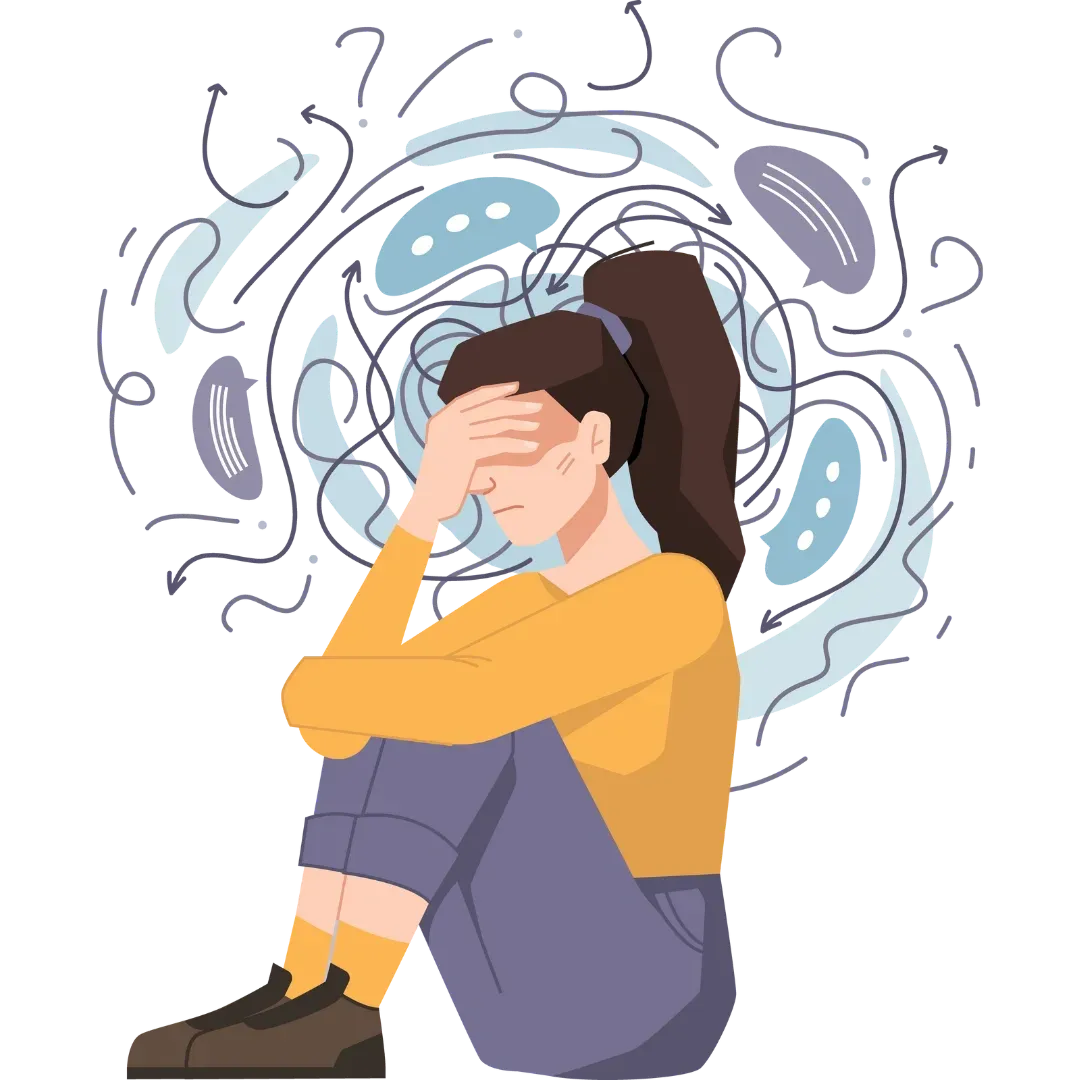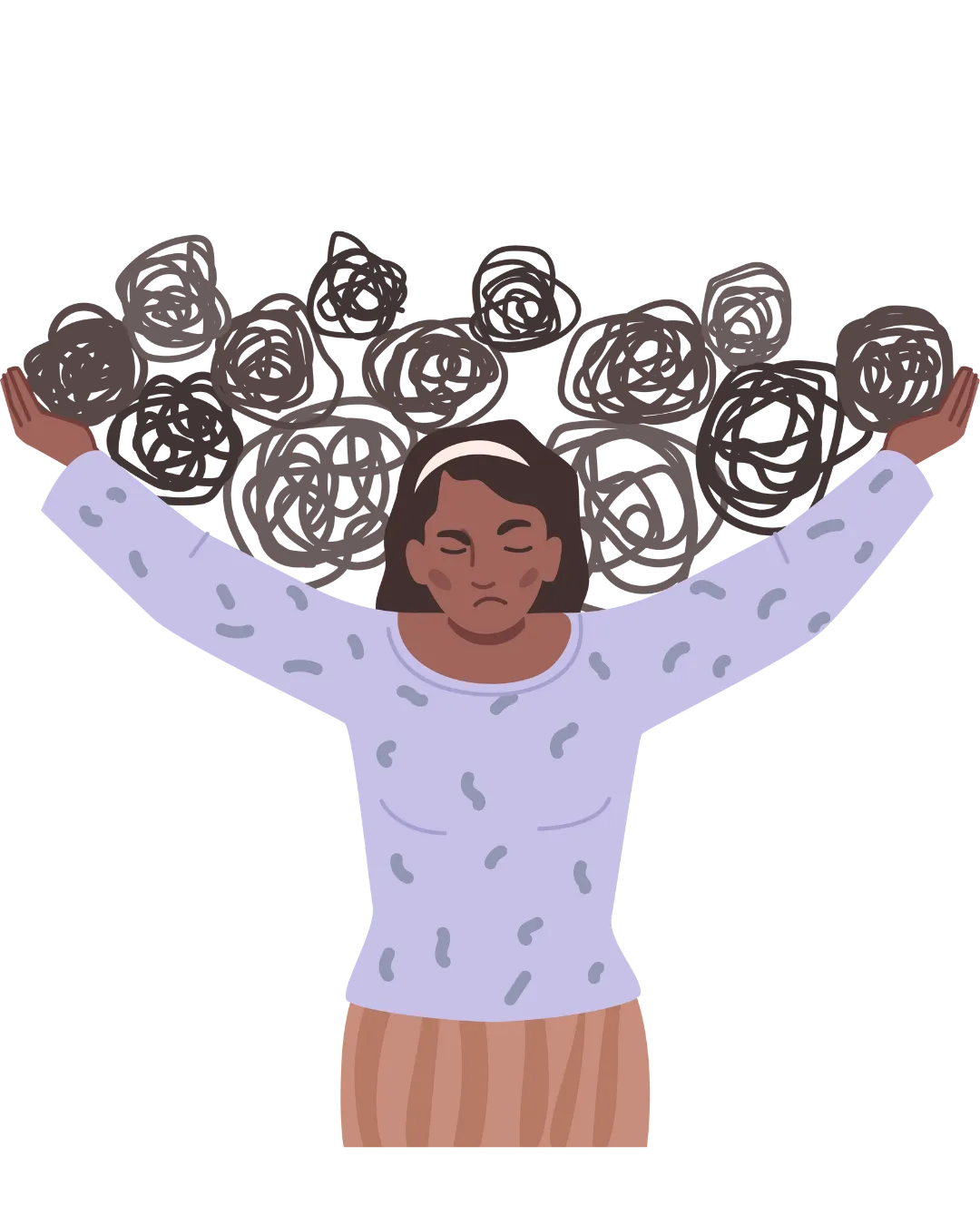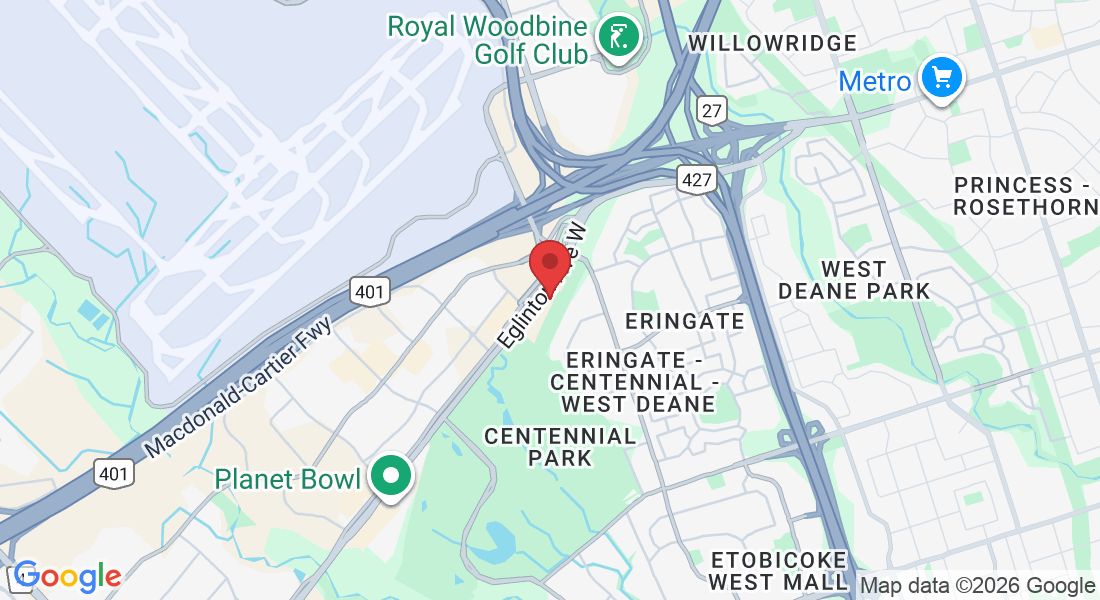Anxiety Therapy Services in Ontario
Overcome anxiety and regain control with personalized therapy designed to help you manage worry and stress.
What is Anxiety?
Anxiety is more than just everyday worry—it's a persistent feeling of fear, dread, or unease that can interfere with your daily life. While occasional anxiety is normal, excessive worry that's difficult to control, causes significant distress, or impacts your functioning may indicate an anxiety disorder.
At Clear Moon Therapy, we provide compassionate, culturally-sensitive anxiety therapy in Toronto and surrounding areas. Whether you’re looking for therapy for anxiety or want professional anxiety therapy, our team offers evidence-based approaches to help you understand your anxiety triggers, develop effective coping strategies, and create lasting change for a more balanced life.

What Are the Symptoms of Someone Dealing With Anxiety?
Anxiety manifests differently for each person, but many clients describe experiences like these:
Common anxiety symptoms include excessive worry, restlessness, difficulty concentrating, sleep problems, muscle tension, irritability, and physical symptoms like rapid heartbeat, shortness of breath, or stomach distress. You may also experience avoidance behaviours that limit your activities or impact your relationships.
Hear From Others Who Have Worked With Clear Moon Therapy
Why Work With a Therapist to Overcome Anxiety?
Working with a qualified anxiety therapist offers significant advantages over trying to manage symptoms alone:
Evidence-based approaches: Research shows that therapy is highly effective for anxiety disorders, with 50-80% of people experiencing meaningful improvement through approaches like Cognitive Behavioural Therapy (CBT).
Personalized strategies: Your therapist will help identify your specific anxiety triggers and develop tailored coping techniques that address your unique situation.
Cultural sensitivity: Your therapists understand the complex cultural factors that can influence anxiety in South Asian communities, including family expectations, cultural transitions, and intergenerational dynamics.
Long-lasting results: Studies show that therapy produces more durable results than medication alone, with lower relapse rates and continued improvement even after treatment ends.
Comprehensive support: Beyond symptom relief, therapy addresses underlying causes of anxiety and helps build resilience for future challenges.
Professional guidance: A therapist provides objective perspective and specialized expertise to help navigate challenges that feel overwhelming when faced alone.
At Clear Moon Therapy, we integrate various therapeutic approaches based on your needs, including Cognitive Behavioural Therapy (CBT), mindfulness-based techniques, Acceptance and Commitment Therapy (ACT), and other evidence-based methods proven effective for anxiety therapy in Toronto and throughout the GTA.

Anxiety Therapy Approaches at Clear Moon Therapy
Cognitive Behavioural Therapy (CBT)
CBT helps identify and change thought patterns that trigger anxiety while developing healthier behavioural responses. Research shows CBT is effective for various anxiety disorders, with success rates of 60-80% for conditions like generalized anxiety and panic disorder.
Mindfulness-Based Techniques
These approaches help you stay present and reduce anxiety by learning to observe thoughts and feelings without judgment. Regular mindfulness practice has been shown to reduce anxiety symptoms by 30-50% in clinical studies.
Acceptance and Commitment Therapy (ACT)
ACT helps you accept difficult thoughts and feelings while committing to behaviours that align with your values. This approach is particularly effective for those who have struggled with traditional anxiety treatments.
Exposure Therapy
For specific phobias and certain anxiety disorders, gradually facing feared situations in a controlled, supportive environment can significantly reduce anxiety responses over time.
Culturally-Informed Therapy
Clear Moon Therapy recognizes that cultural context shapes how anxiety is experienced and expressed. We provide culturally sensitive care that respects your background, values, and unique experiences.
Frequently Asked Questions About Anxiety
What is Anxiety?
Anxiety is the body's natural response to stress, characterized by feelings of fear, worry, and unease about what's to come. While normal in many situations, anxiety becomes problematic when it's excessive, persistent, or interferes with daily activities. Anxiety disorders—including generalized anxiety, social anxiety, and panic disorder—are among the most common mental health conditions, affecting approximately 30% of adults at some point in their lives.
What is an anxiety attack?
An anxiety attack (or panic attack) is an intense episode of fear that triggers severe physical reactions when no real danger is present. Symptoms include rapid heartbeat, shortness of breath, chest pain, dizziness, tingling sensations, and feelings of unreality or fear of losing control. Attacks typically peak within 10 minutes and resolve within 30 minutes, though residual anxiety may persist longer. Through anxiety therapy near you, you can learn techniques to manage and reduce the frequency of these attacks.
What helps cure anxiety?
While anxiety isn't "cured" in the traditional sense, it can be effectively managed through various treatments. Evidence-based approaches include therapy (particularly CBT, exposure therapy, and ACT), medication when appropriate, lifestyle changes (regular exercise, adequate sleep, reduced caffeine and alcohol), stress management techniques, and mindfulness practices. Anxiety therapy goals typically focus on reducing symptoms, developing coping strategies, addressing underlying causes, and improving quality of life rather than eliminating anxiety completely.
Will therapy help my anxiety?
Yes, therapy is highly effective for anxiety disorders. Research consistently shows that approximately 60-80% of people who receive anxiety therapy experience significant improvement in their symptoms. Cognitive Behavioural Therapy (CBT) in particular has strong scientific support, with many clients reporting substantial relief within 8-20 sessions. Therapy addresses not just symptoms but underlying causes, providing tools for long-term management and relapse prevention. Many clients at our anxiety therapy Toronto and GTA locations report improvement within several weeks of starting treatment.
How does anxiety impact my health?
Anxiety can significantly affect both physical and mental health. Physically, chronic anxiety may contribute to digestive problems, headaches, cardiovascular issues, weakened immune function, sleep disturbances, and tension-related pain. Mentally, it can cause difficulty concentrating, irritability, excessive worry, and depression. Anxiety can also strain relationships, reduce work performance, and limit social activities. The stress vs anxiety therapy distinction is important—while stress is typically a response to external pressures, anxiety can persist even when stressors are absent.
What kind of therapy is best for anxiety?
Cognitive Behavioural Therapy (CBT) has the strongest evidence base for anxiety disorders, with numerous studies demonstrating its effectiveness. Other effective approaches include Acceptance and Commitment Therapy (ACT), mindfulness-based therapies, exposure therapy (particularly for specific phobias and OCD), and dialectical behaviour therapy (DBT). The "best" approach varies by individual and anxiety type—many anxiety therapists use integrative approaches tailored to clients' specific needs and preferences.
What therapist should I see for anxiety?
For anxiety treatment, look for therapists with specific training and experience in anxiety disorders. This may include psychologists, psychotherapists, social workers, or counsellors with specialization in CBT, ACT, or other evidence-based anxiety treatments. When choosing between an anxiety therapist, consider their expertise with your specific type of anxiety, their approach to treatment, cultural sensitivity, and your personal comfort with them. The therapeutic relationship is a key factor in successful treatment.
What is the most popular treatment for anxiety?
Cognitive Behavioural Therapy (CBT) is widely considered the most popular and well-established treatment for anxiety disorders. It's recommended as a first-line treatment by most clinical guidelines. Medication (particularly SSRIs and SNRIs) is also commonly used, either alone or in combination with therapy. Among anxiety treatment types, research shows that combining therapy with lifestyle changes produces the most comprehensive and lasting results for most people.
What is the best way to deal with anxiety?
The most effective approach to managing anxiety combines professional treatment (therapy and sometimes medication) with self-care strategies. This includes regular physical activity, adequate sleep, limiting caffeine and alcohol, practicing relaxation techniques, challenging negative thoughts, gradually facing fears, building a support network, and learning stress management skills. For many people, anxiety therapy goals include developing personalized coping strategies that can be used in daily life.
What are 5 things that help with anxiety?
Five evidence-based strategies for anxiety management include: 1) Regular physical exercise, which reduces stress hormones and releases endorphins, 2) Mindfulness meditation and deep breathing techniques to calm the nervous system, 3) Adequate sleep hygiene to improve mood regulation, 4) Cognitive restructuring to identify and challenge unhelpful thoughts, and 5) Gradual exposure to feared situations to build confidence and reduce avoidance.
Free Resources to Get You Started
While professional anxiety therapy provides comprehensive support, these resources can complement your journey toward better mental health:
Offers evidence-based self-help resources, including the free MindShift CBT app specifically designed for anxiety management.
Canada's largest mental health teaching hospital provides educational resources and self-assessment tools for anxiety.
Local support groups and resources specific to Ontario residents dealing with anxiety.
Free online mental health resources and support, including modules specific to anxiety management.
A free stress management app with tools specifically designed for Canadians.
Offers free downloadable worksheets and relaxation techniques for managing anxiety symptoms.
Take the Next Step With Confidence
Schedule your free consultation today to start building the tools and confidence to thrive in your next chapter.
Reach Out To Clear Moon Therapy
1-(647) 372-0577
Visit Clear Moon Therapy
5399 Eglinton Avenue West
Suite 204
Etobicoke, ON
Follow Clear Moon Therapy
© 2024. Clear Moon Therapy. All rights reserved.
Read Our Privacy Policy






